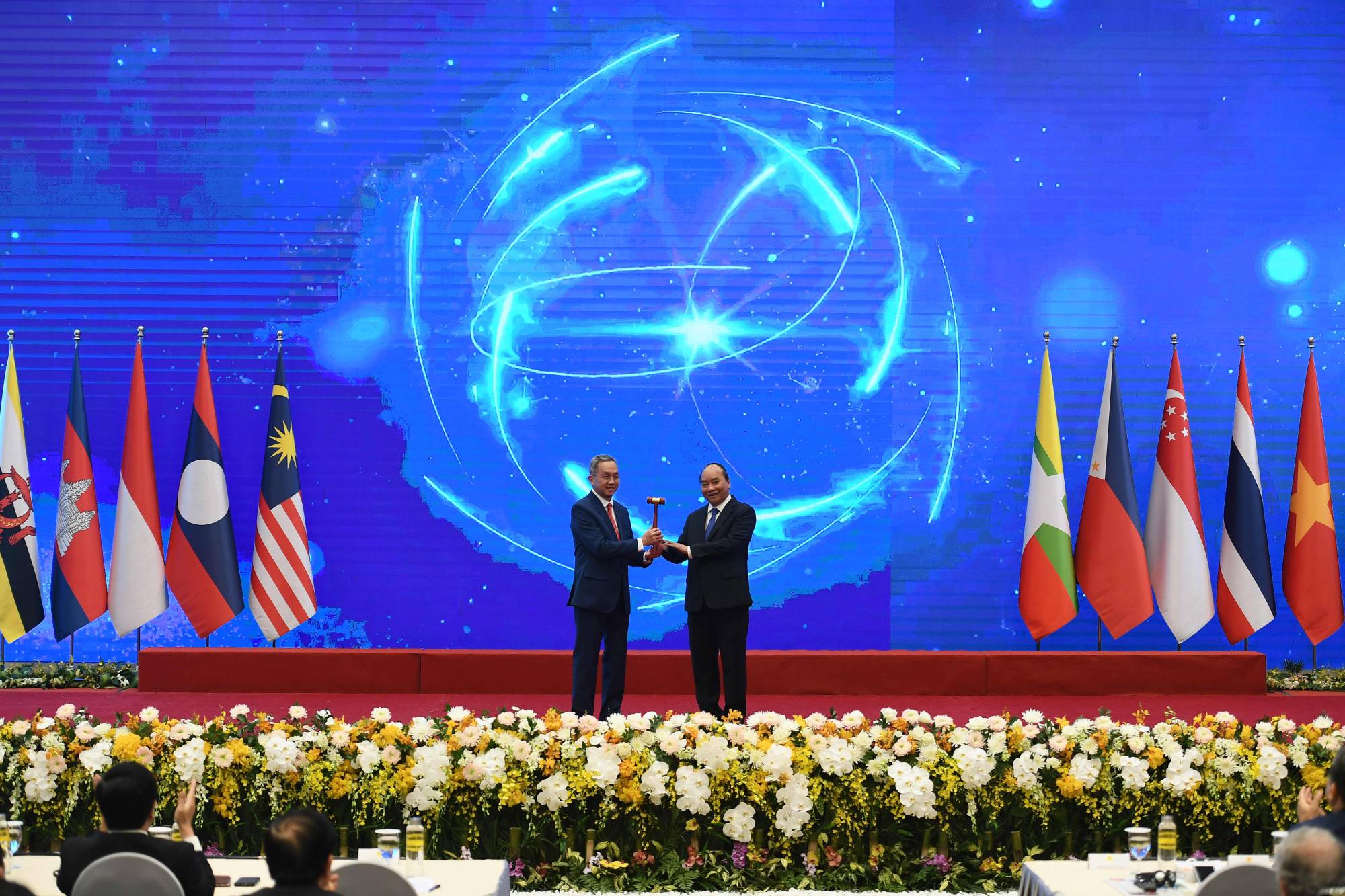It used to be that when someone was accused of “phoning it in,” they were said to be doing a task without enthusiasm, making the bare minimum effort required. The saying has assumed new meaning in the era of COVID-19 when telecommuting has become the norm and “phoning it in” makes a virtue of necessity. Remarkably, U.S. President Donald Trump couldn’t even phone it in for last weekend’s virtual summit meetings with regional leaders, exposing as hollow the U.S. insistence that relations with Southeast Asia are important. That is a mistake, one that the Biden administration can and should fix.
Trump’s absence marked the third consecutive year in which he failed to show up for the annual get-together; the White House says he is busy challenging the results of the Nov. 3 election. His official calendar during the three days of meetings showed two briefings on Operation Warp Speed, the administration’s program to develop and distribute a COVID-19 vaccine, and golf outings; most of the weekend is open.
With the president otherwise occupied, the United States was represented at the ASEAN summits for the second consecutive year by National Security Adviser Robert O’Brien. He shared the screen with Japanese Prime Minister Yoshihide Suga, Chinese Prime Minister Li Keqiang, South Korean President Moon Jae-in, Australian Prime Minister Scott Morrison and Indian Prime Minister Narendra Modi. If O’Brien is right, and “the U.S.-ASEAN strategic partnership has become even more important as we work together to combat the coronavirus,” you’d think that the president would make time out of his not-so-busy day or at least tap Vice President Mike Pence to be his stand-in.



















With your current subscription plan you can comment on stories. However, before writing your first comment, please create a display name in the Profile section of your subscriber account page.